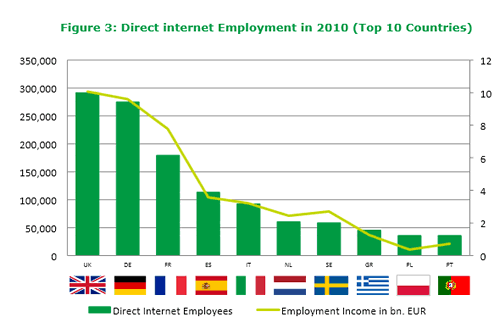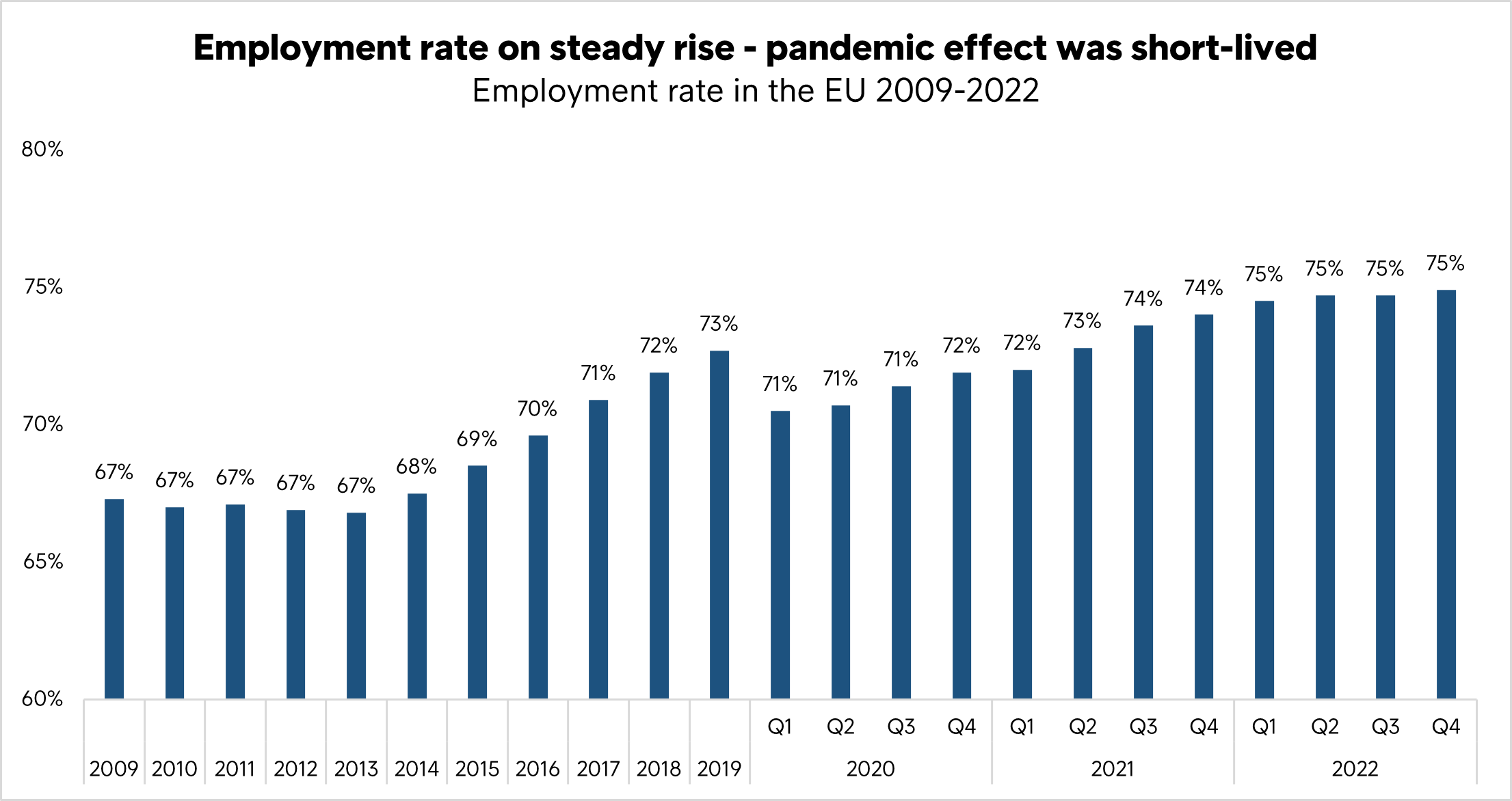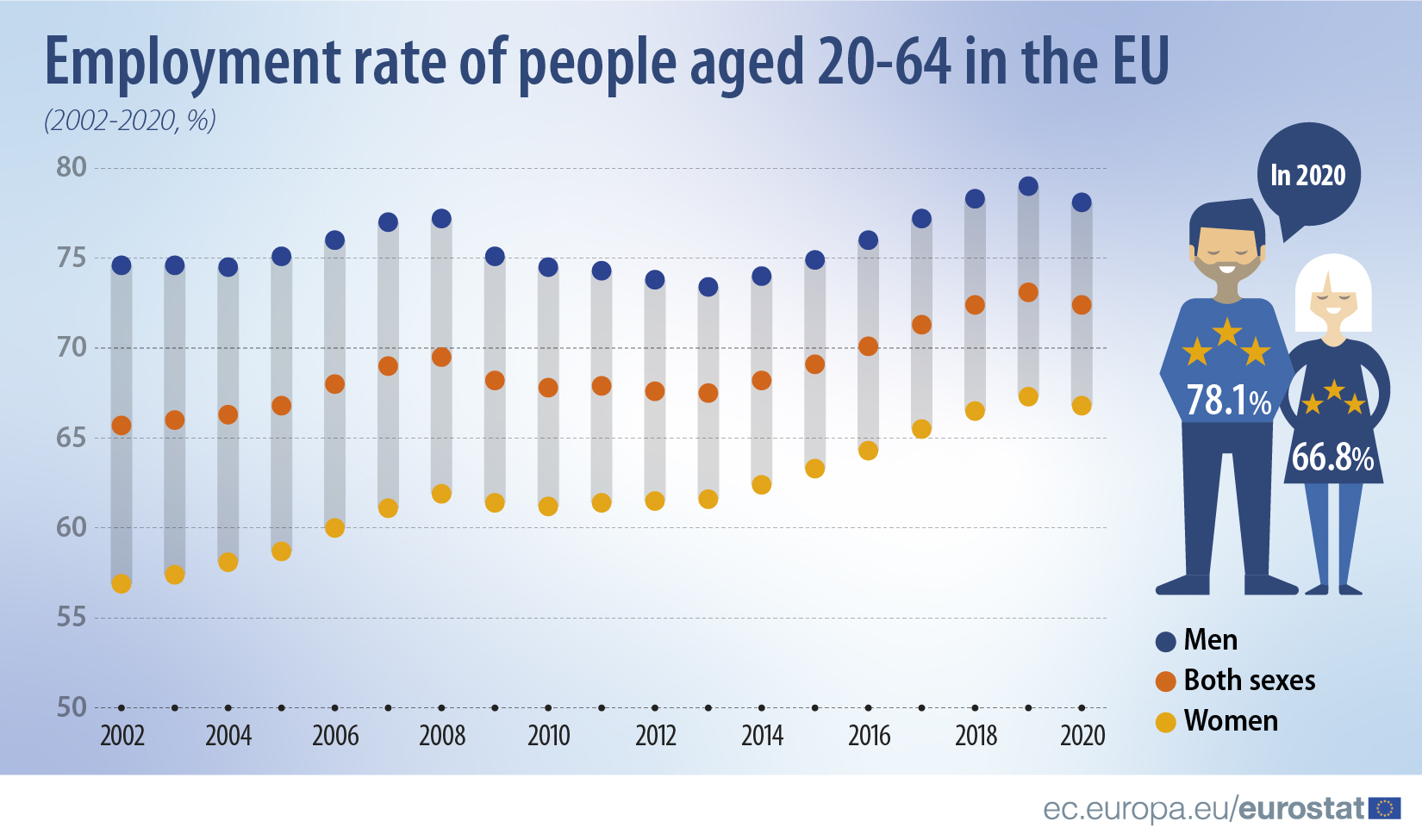The Rise Of Online Employment In Europe: A Comprehensive Overview
The Rise of Online Employment in Europe: A Comprehensive Overview
Related Articles: The Rise of Online Employment in Europe: A Comprehensive Overview
Introduction
With enthusiasm, let’s navigate through the intriguing topic related to The Rise of Online Employment in Europe: A Comprehensive Overview. Let’s weave interesting information and offer fresh perspectives to the readers.
Table of Content
The Rise of Online Employment in Europe: A Comprehensive Overview

The digital landscape has profoundly transformed the nature of work, particularly in Europe. The rise of online platforms and remote work opportunities has opened up a new frontier of employment possibilities, offering flexibility, accessibility, and a wider range of career paths. This article provides a comprehensive overview of the online job market in Europe, exploring its key features, benefits, and challenges, as well as offering insights into navigating this evolving employment landscape.
The European Online Job Market: A Dynamic Landscape
The European online job market is a diverse and dynamic ecosystem, characterized by a wide range of industries, job types, and platforms. The most prominent online job platforms in Europe include:
- General Job Boards: Indeed, LinkedIn, Monster, StepStone, Jobrapido, and Glassdoor are some of the leading general job boards, offering a broad spectrum of positions across various industries.
- Freelancing Platforms: Upwork, Fiverr, Freelancer.com, Guru, and PeoplePerHour connect businesses with freelancers for short-term projects, offering flexibility and independent work opportunities.
- Remote Work Platforms: Remote.co, We Work Remotely, Working Nomads, and FlexJobs focus specifically on remote work opportunities, connecting individuals with companies offering remote positions.
- Industry-Specific Platforms: Platforms like Codility (software development), Dribbble (design), and Behance (creative professionals) cater to specific industries, connecting professionals with relevant job opportunities.
Key Trends Shaping the European Online Job Market:
- Growth of the Gig Economy: The gig economy, characterized by short-term, project-based work, has significantly impacted the European online job market. This trend offers flexibility and income diversification but raises concerns regarding worker rights and job security.
- Rise of Remote Work: Remote work has become increasingly popular, driven by technological advancements and the desire for work-life balance. This trend offers flexibility and geographical independence, but necessitates effective communication and collaboration tools.
- Increased Demand for Digital Skills: The digital transformation across various industries has fueled demand for individuals with digital skills, including data analysis, software development, digital marketing, and cybersecurity.
- Focus on Sustainability and Social Impact: There is a growing emphasis on finding work with a positive social and environmental impact, leading to a surge in online platforms and job opportunities focused on sustainable businesses and social enterprises.
Benefits of Online Employment in Europe:
- Flexibility and Work-Life Balance: Online jobs offer flexibility in terms of working hours and location, allowing individuals to better manage their work-life balance.
- Access to a Wider Range of Opportunities: Online platforms connect individuals with a broader range of job opportunities, transcending geographical boundaries.
- Career Advancement: Online jobs can offer opportunities for career growth and development, with access to online learning resources and opportunities to work on diverse projects.
- Entrepreneurial Opportunities: The online job market provides a platform for individuals to explore entrepreneurial ventures, offering opportunities to start and grow businesses remotely.
- Economic Empowerment: Online jobs can empower individuals, particularly those facing barriers to traditional employment, to participate in the workforce and contribute to the economy.
Challenges of Online Employment in Europe:
- Job Security and Contractual Issues: The gig economy model raises concerns regarding job security and the lack of traditional employment benefits, such as sick leave and pensions.
- Competition and Skill Gaps: The online job market is highly competitive, and individuals need to continuously develop their skills to remain competitive.
- Social Isolation and Lack of Community: Remote work can lead to social isolation and a lack of community, which can impact employee well-being.
- Cybersecurity Risks: Online platforms present cybersecurity risks, requiring individuals to be vigilant about protecting their personal and professional information.
- Regulation and Legal Framework: The online job market is still evolving, and there is a need for clear regulations and a legal framework to protect workers’ rights.
Navigating the European Online Job Market: Tips and Strategies
- Develop Relevant Skills: Invest in developing digital skills that are in high demand, such as data analysis, programming, and digital marketing.
- Build a Strong Online Presence: Create a professional online profile on relevant platforms, including LinkedIn, portfolio websites, and freelance platforms.
- Network and Connect: Attend online events, join relevant communities, and connect with industry professionals to expand your network and access opportunities.
- Understand the Legal Landscape: Familiarize yourself with the legal framework and regulations surrounding online work in your country.
- Seek Support and Resources: Explore resources and support organizations that offer guidance and training for online workers.
- Prioritize Work-Life Balance: Establish clear boundaries between work and personal life to prevent burnout and maintain a healthy lifestyle.
FAQs about Online Jobs in Europe:
1. What are the most in-demand online jobs in Europe?
The most in-demand online jobs in Europe include software developers, data analysts, digital marketers, web designers, content creators, virtual assistants, and customer service representatives.
2. Are online jobs secure?
The security of online jobs depends on the specific platform and employer. It is important to research the platform and employer thoroughly and ensure that contracts and agreements are in place to protect your rights.
3. How can I find legitimate online job opportunities?
Look for reputable online job platforms, read reviews and testimonials, and be wary of suspicious offers or requests for personal information.
4. What are the tax implications of online work in Europe?
Tax regulations vary across countries. It is crucial to understand your tax obligations and seek professional advice if necessary.
5. How can I manage work-life balance with an online job?
Establish clear boundaries between work and personal life, set realistic work hours, and take regular breaks to avoid burnout.
Conclusion:
The European online job market is a rapidly evolving landscape, offering a wealth of opportunities for individuals seeking flexible and accessible employment. While challenges exist, the benefits of online work, including flexibility, career advancement, and economic empowerment, make it a significant force in shaping the future of work in Europe. By understanding the key trends, navigating the platform landscape, and developing relevant skills, individuals can leverage the online job market to achieve their career goals and contribute to the growing digital economy.
![Remote Work Statistics Europe (2023) [100% Updated]](https://zoets.b-cdn.net/wp-content/uploads/2023/02/What-Percentage-of-Europe-Is-Working-Remotely.jpg)
![Remote Work Statistics Europe (2023) [100% Updated]](https://zoets.b-cdn.net/wp-content/uploads/2023/02/What-Are-the-Most-In-Demand-Remote-Jobs-in-Europe-and-Their-Salaries.jpg)






Closure
Thus, we hope this article has provided valuable insights into The Rise of Online Employment in Europe: A Comprehensive Overview. We thank you for taking the time to read this article. See you in our next article!
You may also like
Recent Posts
- Navigating The Digital Landscape: Online Job Opportunities For 17-Year-Olds
- Navigating The Amazon Ecosystem: Online Opportunities For Students
- Navigating The Digital Landscape: Online Jobs In Illinois
- Navigating The Realm Of Remote Work In Malta: A Comprehensive Guide
- The Rise Of Remote Work: A Comprehensive Look At Online Jobs In America
- Unlocking Opportunities: Online Tutoring As A Career Path For Women
- The Rise Of Remote Work: A Comprehensive Guide To Online Jobs From Home In The USA
- The Digital Frontier: Navigating Entry-Level Online Jobs Without Prior Experience
Leave a Reply